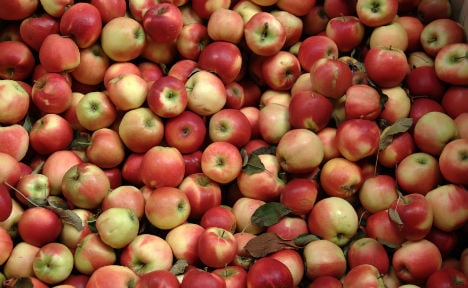An independent laboratory tested 126 apples from supermarkets in 11 European countries.
Among the conventionally-grown apples, 83 percent had a pesticide residue, and 60 percent showed traces of two or more pesticides. All of the organic apples tested were pesticide-free.
On average, the conventional apples had 1.8 different pesticides on them. In Austria, ten native grown apple samples were tested and eight of them had pesticide residue. One sample even tested positive for five different pesticides. The apples were bought at supermarkets including Billa, Hofer, Penny and Spar.
The chemical quantities did not exceed Austrian legal limits, and are therefore unlikely to pose an immediate health risk. However, Greenpeace has said the results are worrying because of the apples’ contribution to the toxic burden – the accumulation of various chemicals in people’s bodies which can have a negative effect on overall health.
Greenpeace is calling on supermarkets to support farmers to switch to organic farming methods.
“Pesticides are found everywhere, in the fields and on our plates. This is very worrying,” warned Herwig Schuster, Greenpeace Austria’s chemical expert.
Greenpeace argues that the EU’s evaluation, authorization and monitoring of pesticides is “flawed”, and that it doesn’t react quickly enough to limit certain pesticides in response to new scientific research.
“Current EU regulations mean that the recommended daily dose of the insecticide chlorpyrifos is already exceeded with one apple – despite new advice from the European food safety authority,” Schuster said. He says that there is evidence that chlorpyrifos could contribute to reproductive disorders and lung disease.



 Please whitelist us to continue reading.
Please whitelist us to continue reading.
Member comments